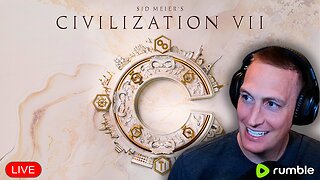Premium Only Content

10000000 302609245388039 9036431385489791829 n
This story of Esau’s impulsive nature, – selling part of his heritage for the sake of a bowl of soup – is reinforced by the unique description of the action in the staccato form of five consecutive verbs (literally, “he ate, he drank, he rose, he left, he despised”). Every time we see Esau we have the impression of an impulsive figure always driven by the emotion of the moment, be it hunger, filial devotion, a desire for revenge or, at last, generosity of spirit. In the Brit Chadashah, I see in Peter the character of Esau.
Jacob though, is the opposite. He does not give way to his feelings. He acts and thinks long-term. That is what he does when he seizes the opportunity to buy Esau’s birthright, when he works for seven years for Rachel (a period that “seemed to him but a few days”), and when he fixes terms with Laban for payment for his labor. Rebuking his son Joseph for the seeming presumptuousness of his dreams, the Torah tells us that the brothers were jealous of Joseph “but his father kept the matter in mind.” Jacob never acts impulsively. He thinks long and hard before deciding.
-
 1:02:28
1:02:28
Treeoflifehouston
1 year agoIsaiah Chapter 41 Fear Not
12 -
 LIVE
LIVE
Vigilant News Network
16 hours agoUK Government BUSTED in Secret Plot to Extract Your Data | Media Blackout
1,614 watching -
 1:03:32
1:03:32
Winston Marshall
3 days ago"War On Children!" The DEMISE Of The West Starts With Schools - Katharine Birbalsingh
127K67 -
 48:02
48:02
Survive History
19 hours ago $9.24 earnedCould You Survive as a Sharpshooter in the Napoleonic Wars?
77.1K3 -
 12:03
12:03
Space Ice
20 hours agoSteven Seagal's China Salesman - Mike Tyson Knocks Him Out - Worst Movie Ever
57.3K21 -
 11:37
11:37
Degenerate Jay
19 hours ago $20.69 earnedJames Bond Needs Quality Over Quantity From Amazon
131K13 -
 15:23
15:23
Misha Petrov
19 hours agoTrad Wives & Girl Bosses Go to WAR!
93.5K53 -
 2:03:11
2:03:11
TheDozenPodcast
18 hours agoFootball villain fighting the state: Joey Barton
70.4K1 -
 13:18:50
13:18:50
Scottish Viking Gaming
21 hours ago💚Rumble :|: Sunday Funday :|: Smash the Blerps and Vape the Terpes
104K8 -
 1:45:00
1:45:00
RG_GerkClan
22 hours ago🔴LIVE Sunday Special - It's Time for World Domination - Civilization VII - Gerk Clan
94.2K28